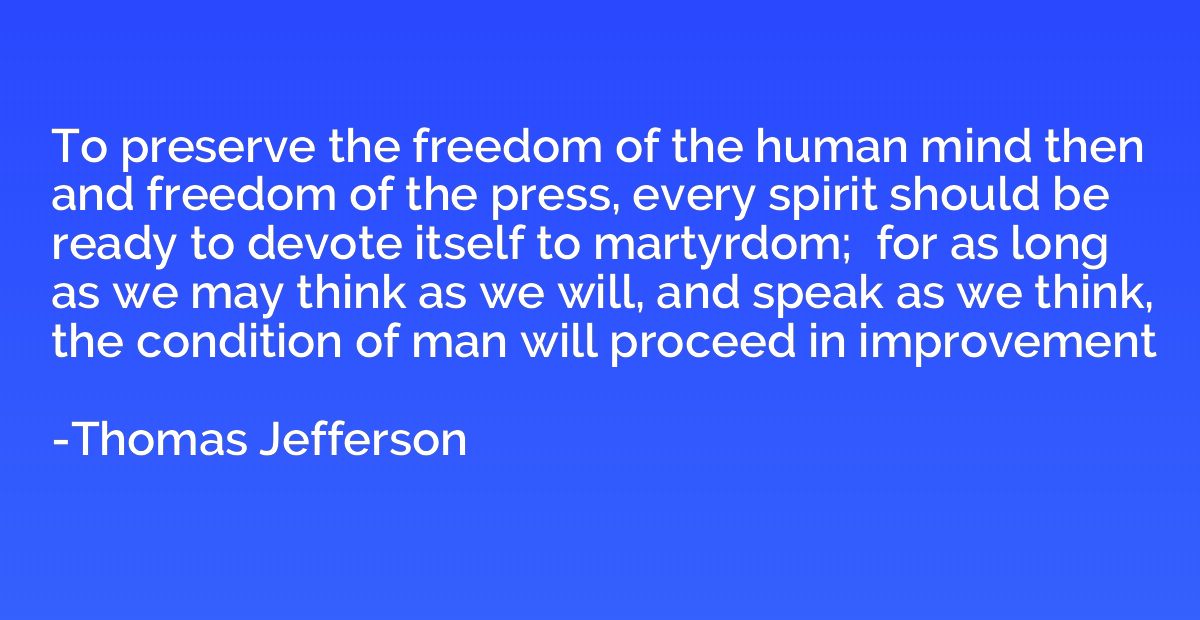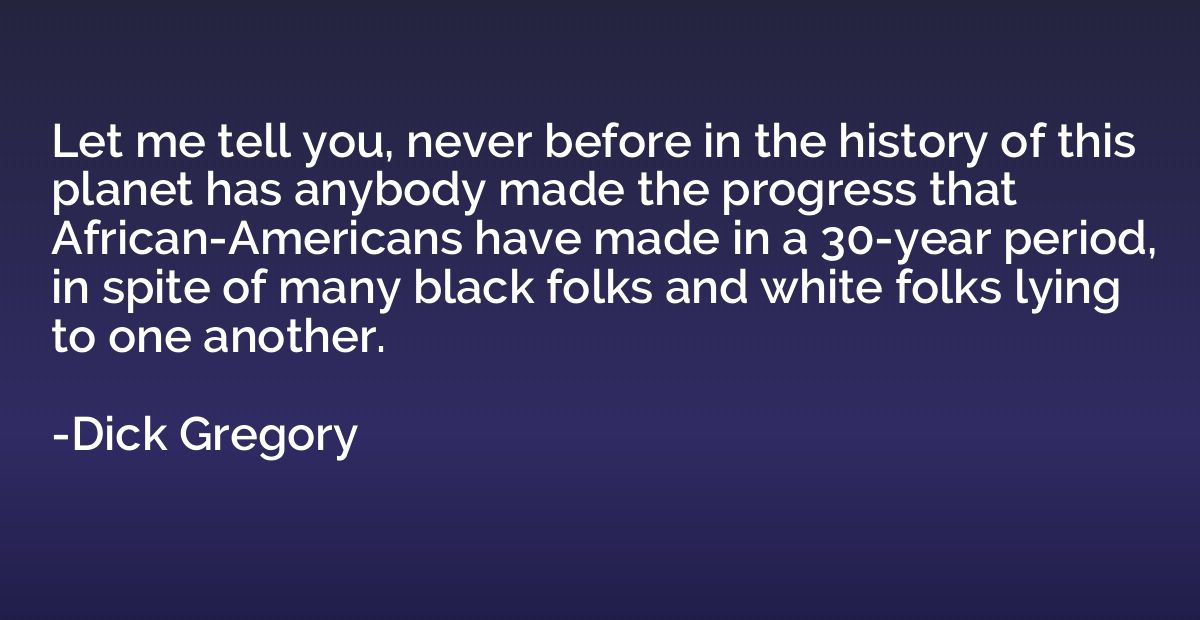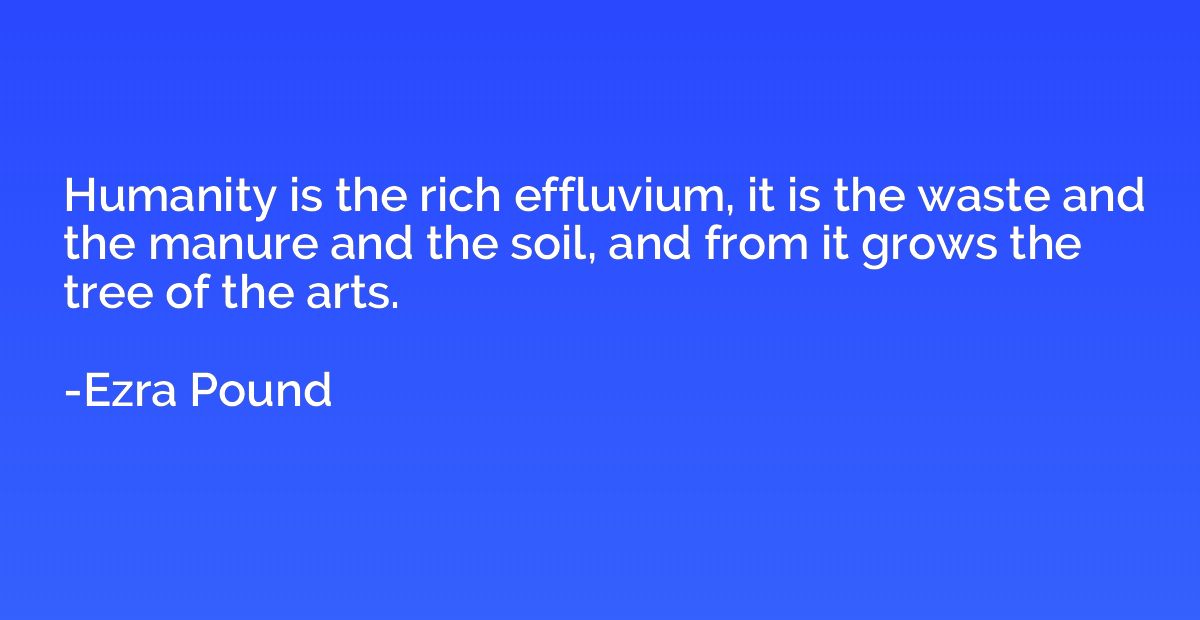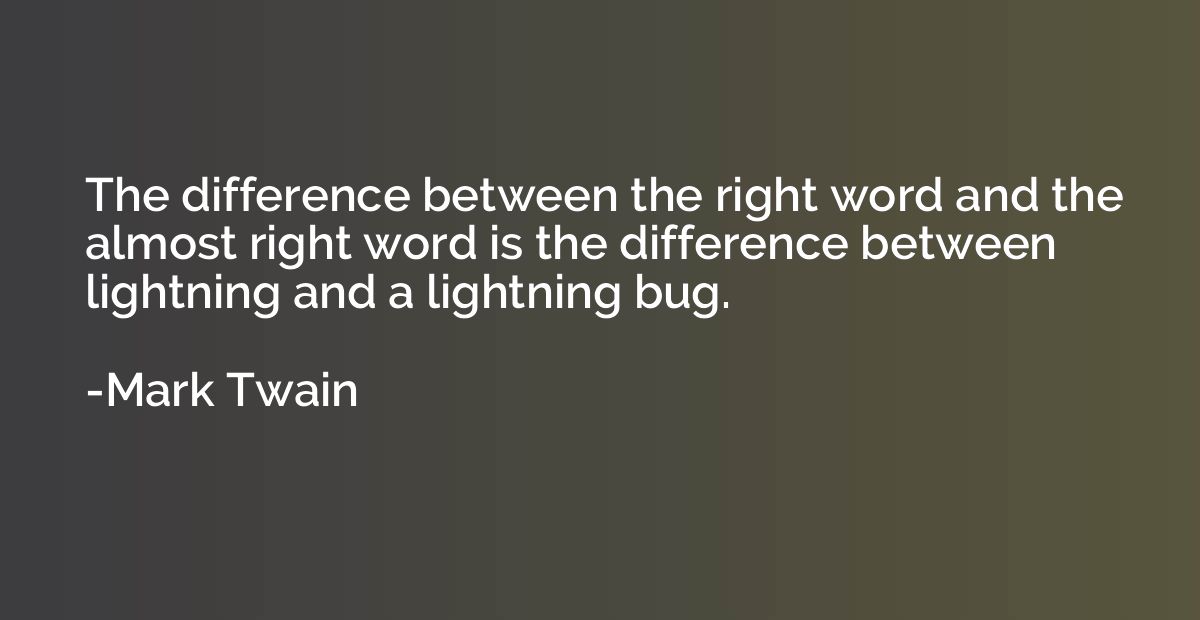Quote by Thomas Jefferson
To preserve the freedom of the human mind then and freedom of the press, every spirit should be ready to devote itself to martyrdom; for as long as we may think as we will, and speak as we think, the condition of man will proceed in improvement

Summary
This quote emphasizes the importance of safeguarding intellectual freedom and freedom of expression, particularly through the use of the press. It suggests that every individual should be willing to make sacrifices, even to the point of martyrdom, in order to protect these rights. By allowing people to freely think and express their thoughts, humanity will continue to progress and evolve. The quote highlights the belief that these freedoms are instrumental in advancing the overall condition of mankind.














